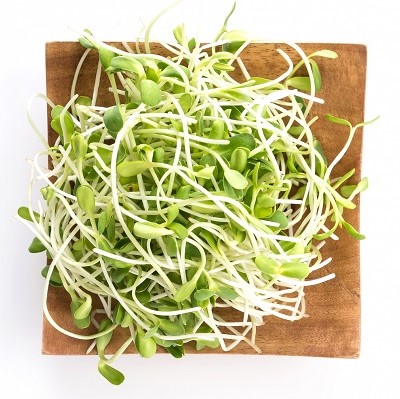 In the quest for a healthy lifestyle, improved health and longevity diet is key. Plants are the most important sources of vital nutrients for good health, and a diet that is primarily comprised of plant-based foods is highly recommended for long lasting health and vitality. Sprouts are some of the healthiest plant food sources.
In the quest for a healthy lifestyle, improved health and longevity diet is key. Plants are the most important sources of vital nutrients for good health, and a diet that is primarily comprised of plant-based foods is highly recommended for long lasting health and vitality. Sprouts are some of the healthiest plant food sources.
What are Sprouts?
Sprouts are very young shoots of a plant such as alfalfa, sunflower, or soybean that are eaten as a raw vegetable. Sprouts are nutrient dense superfoods that can easily boost your nutrient intake. Organic sprouts are leafy vegetables that can be used in many dishes to make the meal healthier.
Growing Your Own
They are a great produce when grown organically inside or outside your house. These crops can be grown in a pot in an apartment or in a garden and are very simple to grow. You can even grow them in wintertime when there is little sunlight and it’s cold outside.
You don’t have to be a master gardener to grow plenty of sprouts for your dining pleasure. You can even involve your children in the activities of growing, tending, and harvesting your organic sprouts.
Why Eat Sprouts?
Sprouts are a great, inexpensive food you can add to other fresh, organic dishes. They are packed with nutrients you need for good health. There are several different kinds of organic sprouts. Choose from among the selection to see which sprouts you and your family like the best.
These are some other good reasons why you should consider growing and eating sprouts as part of a healthy diet:
- Sprouts contain live micronutrients for better nutrition.
- Sprouts contain as much as one hundred more natural enzymes than raw fruits and vegetables.
- They contain the energy and healthfulness of sunshine for excellent nutrients and vitamins.
- Sprouts contain large amounts of vitamin content, especially when eaten fresh, raw and young.
- Sprouts contain vegetable protein, which is good for many different cellular processes.
- Sprouts contain healthy fiber for your digestive tract.
- You can get essential fatty acids from eating sprouts.
- Sprouts contain both calcium and magnesium, both of which bind to protein in your system for a source of digestible minerals.
- Sprouts alkalinize your body, which is healthy for cellular metabolism.
- You’ll know sprouts are organic because you’ve grown them yourself without pesticide or herbicides.
- Sprouts contain a large amount of antioxidants, which are nutrients that block the negative effects of oxygen free radicals on the body and the cells of the body.
Not all sprouts are created alike. Each kind of sprout has its own brand of nutritional qualities so it pays to have a nice variety of sprouts growing in your garden or in pots indoors or outdoors.
What are the Best Sprouts?
As mentioned, there are many different types of sprouts. Eat and grow a variety to get the most varied nutritional value. Here are some sprouts, which have benefits other sprouts don’t have:
- Broccoli sprouts – These are sprouts that have high amounts of healthy phytochemicals including the precursor molecule to Sulforaphane, an essential part of good nutrition.
- Alfalfa sprouts – These contain a lot of healthy phytoestrogens and other phytochemicals. They are high in saponins and canavanine as well as being a good source of these vitamins: A, B, C, D, vitamin E, and vitamin K.
- Lentil sprouts – Lentils are high in protein at about 26 percent. They can be eaten raw like any other sprout.
- Clover sprouts – These contain a great deal of phytochemicals and isoflavones.
- Mung bean sprouts – They are a great source of plant protein and a good source of vitamins A and C.
- Sunflower sprouts – These are rich in essential fatty acids, other types of healthy fats, fiber, minerals, and phytosterols. They are high in protein and contain many vitamins.
- Pea shoot sprouts – Pea shoots are an excellent source of folic acid, vitamin A, vitamin C, magnesium, and zinc. They are a good source of protein as well.
One little known fact of sprouts is because they are early in the life cycle of a regular plant; they are nutrient dense so eating a small amount of them packs a great punch. Put them in salads, sandwiches, wraps and other healthy dishes to boost the nutrient content of just about any dish.






